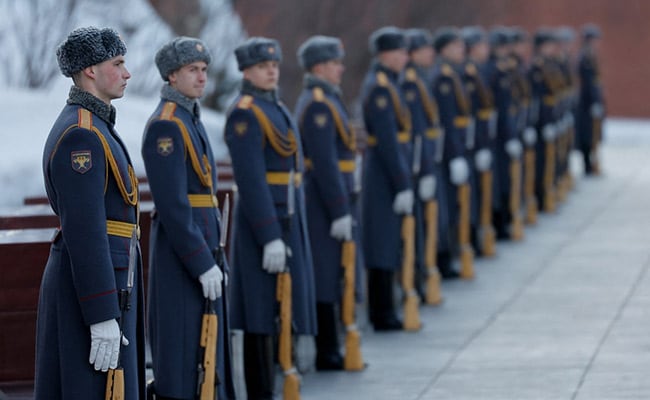
The tense Russia-Ukraine border standoff showed first signs of thaw on Tuesday after Moscow said that it is pulling back some of its forces to their bases. Over 100,000 Russian troops have been stationed along the Ukraine border.
Here are the latest developments in this big story:
Russian news agencies said that the forces are returning to the bases “after completing their tasks”. After the pullout, Russian Foreign Ministry spokeswoman Maria Zakharova said, "February 15 will go down in history as the day Western war propaganda failed,” she wrote. Ms Zakharova further said that the West has been “shamed and destroyed without firing a single shot".
It was not immediately clear how many units were involved and what impact the withdrawals would have on the overall number of troops surrounding Ukraine, but it was the first announcement of a Russian drawdown in weeks.
The development comes hours after fresh satellite images released by Maxar technologies showed massive troop build-up near Ukraine's borders, which spurred fears of an invasion.
Russia said it sent forces to Belarus and other neighbouring countries for military exercises, but the western powers widely believed that the troops were meant to attack Ukraine, which has shown overtures to join West-backed NATO.
As the news of Russian troops leaving for their bases spread, it brought relief in oil markets. The price of the oil had reached its highest level since 2014. But British Foreign Secretary Liz Truss earlier told Sky News that words are easy, but the only thing she will believe is "when they move the troops away from the border".
The Indian embassy, meanwhile, advised students and Indian nationals in Ukraine's capital Kyiv to leave the country temporarily.
The West-led resistance to Mr Putin's push has warned of sanctions against the Kremlin if Russian troops enter Ukraine. These sanctions will impact key companies in Russia's important energy, defence and financial sectors. However, some experts have warned of retaliation from Russia, like cutting of oil supply etc.
As far as diplomatic efforts are concerned, German Chancellor Olaf Scholz is holding a meeting with Mr Putin in Moscow to dissuade the Russian leader from attacking his ex-Soviet neighbour. French President Emmanuel Macron met Mr Putin last week and told him that “sincere dialogue” is incompatible with escalation.
The Kremlin, meanwhile, is insisting that NATO must give assurance that Ukraine will never be admitted as a member and roll back its presence in eastern European countries.
US President Joe Biden and British Prime Minister Boris Johnson agreed in a call late Monday that "a crucial window for diplomacy" remained.

